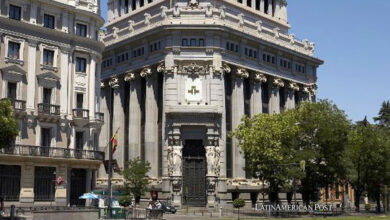Venezuela doesn’t have the necessary political force
Listen this article
What is the use of the country to have an opposition leader who does not have military support?

A chaotic week has had Venezuela. First began with the possession of the second term of Nicolás Maduro, who despite international criticism decided to rise to power, in a ceremony in which he praised the Venezuelan revolution and the figure of Hugo Chávez. He even had time to make Colombian president, Iván Duque looks terrible, claiming that Simón Bolívar had been the liberator of the country and not Captain America.
However, in the midst of useless ceremonies, there was a person who stole the show: Juan Guaidó. Probably last weekend was the first time we heard his name. Well, Guaidó declared himself President of the National Assembly, which since 2015 has been in the hands of the Venezuelan opposition.
Through an open town council, Guaidó introduced himself as the interim president of Venezuela, and amid the confusion of having two presidents, the international community decided to support him. However, during the weekend Guaidó was captured and then released. I have to accept that when they detained him, I thought that another political novel in the style of Leopoldo López was going to take shape in Venezuela. But it was not like that, and even the police officers who managed his capture were sent to jail.
But this opposition politician can do little or nothing to fight against the Maduro regime. First, and I reiterate, his name is not so well known to Venezuelans. Second, is what you are proposing is compelling to receive the necessary support? Third, who is going to govern?
Maybe you're interested in reading: Venezuela: What happened to Juan Guaidó?
The figure of Juan Guaidó does not have to represent hope for an overwhelmed and suffering people. It has to represent strength, change, and so on. If he does not move his pieces properly, Guaidó can turn out to be another Leopoldo López. Is that every time the opposition is visible is a problem. They can generate an expectation, they can march, they can denounce, they can condemn Maduro, but they need that touch, that spark that makes everything explode. That spark is nothing less and nothing more than military support.
Until the military forces of that country decide not to intervene and go against the Maduro regime, the opposition will not be able to retake control of the country. They already started with something, because a group of Venezuelan military officers did not know Nicolás Maduro as president of the country. The problem is that this group is based in Lima, Peru and not in Venezuela, which is where you have to start.
All of a sudden, those who are in Venezuela are taken into account, and those respond to the call of Guaidó, who affirmed that "We have the people, we lack the military." Suddenly they are seduced by the exit that Guaidó proposes that those soldiers who have supported the Maduro regime will be forgiven and given a chance to do the right thing. A solution, which until now, I think is not convincing enough to change sides.
Meanwhile, Guaidó plans to go out again to protest against the Maduro regime, something that was not done since 2017 when the numbers of protesters rose to 130. The first march of the year will be on January 23; we will see how much support it receives or how ignored and repressed it is. What is clear is that Guiadó has everything to lose if he does not make a clear and attractive movement for the Venezuelan military. Otherwise, it will result in another failed attempt in which Venezuela's opposition does not achieve anything.
LatinAmerican Post | Laura Viviana Guevara Muñoz
Translated from " Venezuela no tiene la fuerza política necesaria"
* The opinion of the writer does not represent the opinion of LatinAmerican Post





